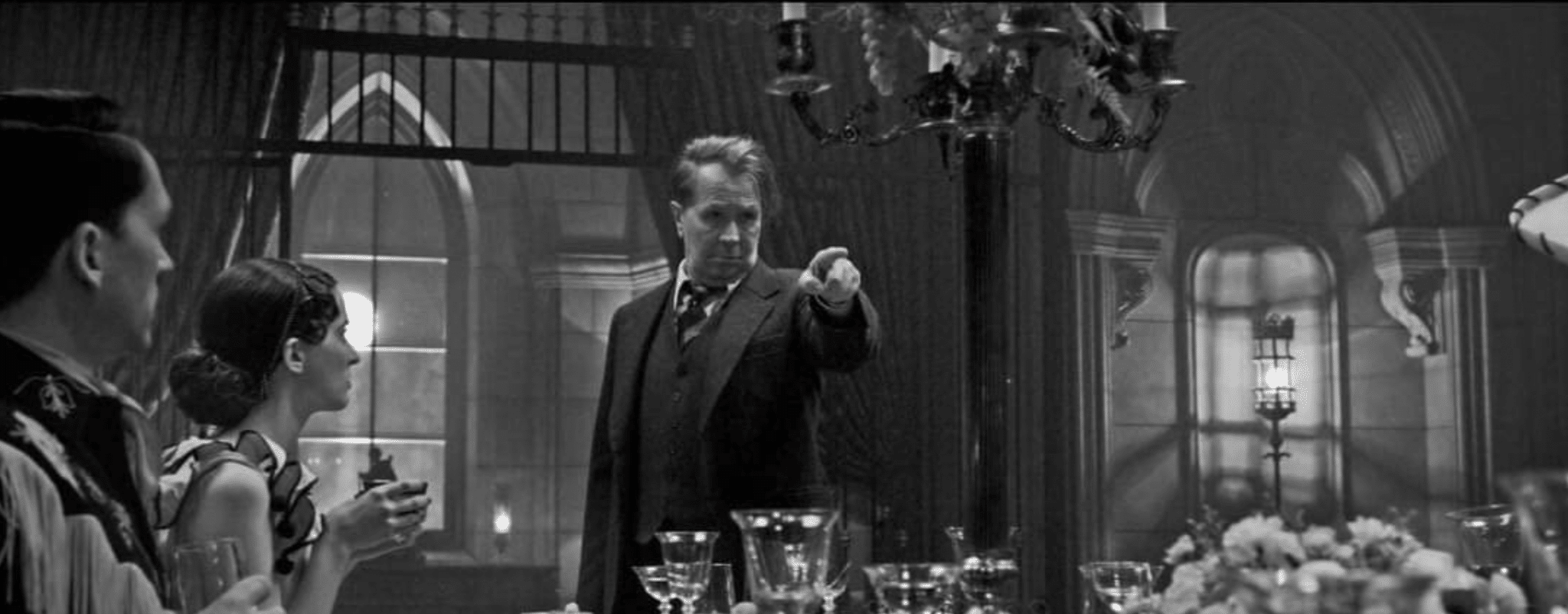There’s a salient bit in Elia Kazan’s mediocre final film, The Last Tycoon (1976), based on F. Scott Fitzgerald’s incomplete last novel about Hollywood. The scene appropriately features two great stars from its golden age. Ray Milland plays a New York banker who thinks he knows one big reason why the motion picture studio run by mogul Robert Mitchum is losing money: “I went down to the writer’s building this morning, and I stood there and watched them for 15 minutes. There were two of them there and didn’t write a line.” Both Kazan and Fitzgerald understood the challenge for writers under the old studio system (Fitzgerald was a washed-up alcoholic novelist given scraps of screen work, including a shot at Gone with the Wind). Another was Herman J. Mankiewicz, writer of Citizen Kane and the subject of an unpleasant new film, Mank, directed by David Fincher, the premium auteur of unpleasant films (Se7en, Fight Club, Gone Girl) — and written by his late father, Jack Fincher.
Before Hollywood became Hollywoke, it knew how to make great movies, including movies about the movies — Billy Wilder’s Sunset Boulevard (1950), Vincent Minnelli’s The Bad and the Beautiful (1952), and Robert Altman’s The Player (1992) being the three finest examples. Neither Fincher comes close to their level in Mank, and both contribute to the institution’s failure.
Take the script first. Although the narrative alternates between Mankiewicz’s struggle to write Citizen Kane in 1940 and flashbacks of his early 1930s Hollywood career, it excessively and fallaciously focuses on the 1934 California governor’s race featuring anti-capitalist author Upton Sinclair (The Jungle) as a candidate. Sinclair was a former Socialist Party member turned Democrat for his only chance to win, who was derailed by the then-conservative newspapers and mocking MGM newsreels authorized by Irving Thalberg. The Finchers make the race a central arc of the story and the reason for Mankiewicz’s hostility toward William Randolph Hearst that would inspire his cinematic masterpiece.
The movie Mankiewicz (Gary Oldman) spends much of his time and effort trying to foil the aims of Hearst (Charles Dance), Thalberg, and studio head Louis B. Mayer (Arliss Howard) and rescue Sinclair’s candidacy. Historically, Mankiewicz had no reported interest in the Sinclair race, although his younger brother Joseph did — on the Republican side. Joseph Mankiewicz actually wrote Sinclair-bashing radio dramas — not to mention better films than Herman (A Letter to Three Wives, All About Eve, Guys and Dolls), with the exception of Citizen Kane, on which Herman had a little help from Orson Welles. While Joe (Tom Pelphrey) is a major character in Mank, his political conservatism is omitted.
The whole thing culminates in an embarrassing scene in which the drunken Mankiewicz crashes a VIP Hollywood dinner party and compares Hearst and Mayer to characters in a future script before predictably vomiting. What makes the segment even more pathetic is that his two main targets were a great deal more accomplished than he, and even come off better in the scene. Mankiewicz looks like a pompous jerk.
“Now I know none of you read,” he says to a remarkably polite audience that includes the newspaper tycoon and the manufacturer of some of the greatest films and stars of all time. So when Mayer responds with, “Who the f___k do you think you are, Mankiewicz? You’re nothing but a court jester,” knowledgeable viewers will agree with him.
Doubtless the Finchers were hoping to make a contemporary statement about powerful media propaganda in the destruction of a crusading politician. The irony appears lost on David Fincher that almost the entire news, social, and entertainment media just combined to defeat a true visionary leader and promote the very socialist garbage Sinclair stood for, with worse lies than were used against him. A double-edged joke in Mank is that Sinclair is played by Bill Nye, the unintentionally ludicrous, self-proclaimed “Science Guy.” Like Fitzgerald, Mankiewicz was an alcoholic writer, but using this tragic flaw as a through-the-boozing glass view of the “immoral” giants in his orbit shows pedestrian screenwriting well beneath both men, and certainly beneath Citizen Kane.
After wasting an inordinate amount of screen time on the Sinclair saga that has nothing to do with their protagonist’s claim to fame, the Finchers make a late, desperate attempt to refocus the story on Mankiewicz versus Orson Welles. There is zero conflict shown between Welles and Mankiewicz until almost the end of the picture. Up to this point, Welles, uncannily portrayed by Tom Burke, is quite supportive and appreciative of Mankiewicz’s effort. Suddenly, out of nowhere, Welles inexplicably objects to Mankiewicz demanding credit for the screenplay, and he also gets the better of him. “That you’ve done your best work was no accident. I removed any distraction, eliminated every excuse — your family, your cronies, liquor — I gave you your second chance.” Fact check — true.
Rather than salvage his father’s pedestrian screenplay, David Fincher piles on the obvious, with black-and-white cinematography and dark lighting clearly meant to emphasize the corruption, rather than glamor, of Hollywood. But Hollywood darkness always lay beyond the glitter, not in shadow. If Fincher had watched Citizen Kane a few more times before directing Mank, he might have appreciated how brilliantly Welles signaled Kane’s early corruption with a bright, lively, yet eerily oppressive dance number. But they don’t make them like that anymore.























